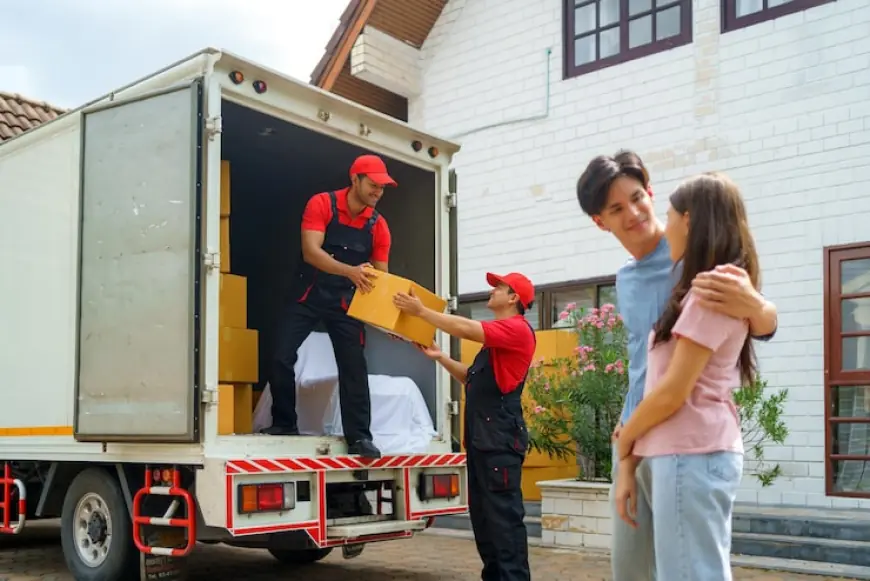From Coast to Countryside: Emotional and Practical Realities of Moving Out of State
Explore the emotional and practical sides of moving out of state, from coast to countryside, with tips for a smoother relocation.

Moving out of state is more than just changing your ZIP code — it’s an emotional voyage and a logistical puzzle rolled into one. Whether you’re trading the crashing waves of a coastal city for the rolling hills of the countryside or seeking a slower lifestyle after years in a bustling metropolis, the shift demands more than boxes and tape. Once the decision is made, you’ll need to navigate the emotional tug of leaving familiar scenery and the practical hurdles of long-distance relocation, often with the guidance of trusted packers and movers.
The Emotional Landscape of Relocating Across Borders
Leaving a place you’ve called home is rarely straightforward. The coastline’s salty air, familiar cafés, and weekend routines become more than scenery — they’re memory anchors. Shifting to a countryside rhythm means rewriting those anchors entirely.
People often underestimate the emotional weight of relocating, focusing solely on the to-do lists. But the truth is, moving out of state creates a space where nostalgia collides with anticipation. You may grieve the loss of coastal comforts while simultaneously yearning for the quiet hum of rural mornings.
The Psychology of Place Attachment
Researchers call it place attachment — the invisible bond between people and their environments. For someone raised in a city where the ocean is a short walk away, the countryside might feel unmoored at first. Conversely, if you’ve been surrounded by farmland all your life, a city move might flood your senses with overstimulation.
Recognizing this attachment allows you to approach relocation with awareness rather than resistance. Journaling your thoughts or creating a visual diary of your old neighborhood can provide emotional closure while opening you up to new surroundings.
Practical Hurdles of Interstate Relocation
Beyond the feelings, moving out of state requires methodical planning. Transporting your belongings hundreds or even thousands of miles calls for strategic packing, legal documentation, and sometimes adjusting to entirely different climate conditions.
One of the first tasks is evaluating whether to handle the move yourself or hire professional packers and movers. While a DIY approach might seem budget-friendly, the reality of interstate logistics — from securing the right vehicle to ensuring fragile items arrive intact — often tips the scales toward seasoned experts. They handle the wrapping, loading, and transit with precision, leaving you bandwidth for managing the bigger picture.
Budgeting Beyond the Boxes
Many underestimate the hidden costs of relocation. It’s not just the truck rental or service fees — there are deposits for new utilities, potential changes in insurance premiums, and costs for temporary lodging if your new home isn’t move-in ready.
Creating a layered budget can prevent unpleasant surprises. Include categories for travel, settling-in expenses, and even downtime if you’ll need a few days before starting work in your new location. This financial preparation is just as crucial as bubble wrap and tape.
Adapting to a New Environment
The countryside and coast offer contrasting lifestyles. Coastal living often means vibrant marketplaces, diverse eateries, and a constant stream of new faces. Countryside life leans toward neighborly familiarity, seasonal rhythms, and the quiet hum of open fields.
Adjusting to the pace of your new setting may require patience. It helps to immerse yourself in local culture, attend community gatherings, and explore hidden gems unique to your region. These steps bridge the emotional gap left by your former home and help create a sense of belonging faster.
Overcoming Cultural Shifts
Culture isn’t just about language or customs — it’s about the subtle habits and expectations within a community. A small rural town may prioritize face-to-face introductions, while a coastal city might value speed and convenience.
Approaching these differences with curiosity rather than comparison can transform your experience. Listen more, speak less initially, and find common ground through shared interests, whether that’s gardening, volunteering, or local festivals.
The Role of Support Networks
Relocating to a different state can feel isolating at first, especially if you leave behind a tight-knit group of friends and family. In these moments, building a new support network becomes essential for emotional stability.
Reach out to neighbors, join social clubs, or participate in interest-based groups. Even casual conversations in local cafés or farmers markets can blossom into genuine friendships over time.
Staying Connected to Your Roots
While it’s important to adapt, staying connected to your past can offer comfort. Schedule regular calls with friends, share updates through social media, or plan seasonal visits back to your old town. This balance keeps you grounded without preventing you from embracing your new environment.
Final Thoughts
From coast to countryside, the journey of moving out of state blends emotional adaptation with logistical precision. It’s a process where place attachment meets fresh opportunity, and where careful planning smooths the bumps in the road. Whether you lean on experienced packers and movers or tackle the transition independently, the key is to approach it as both a personal and practical evolution. Each step you take reshapes your surroundings — and, in time, yourself.
What's Your Reaction?
 Like
0
Like
0
 Dislike
0
Dislike
0
 Love
0
Love
0
 Funny
0
Funny
0
 Angry
0
Angry
0
 Sad
0
Sad
0
 Wow
0
Wow
0



















































